
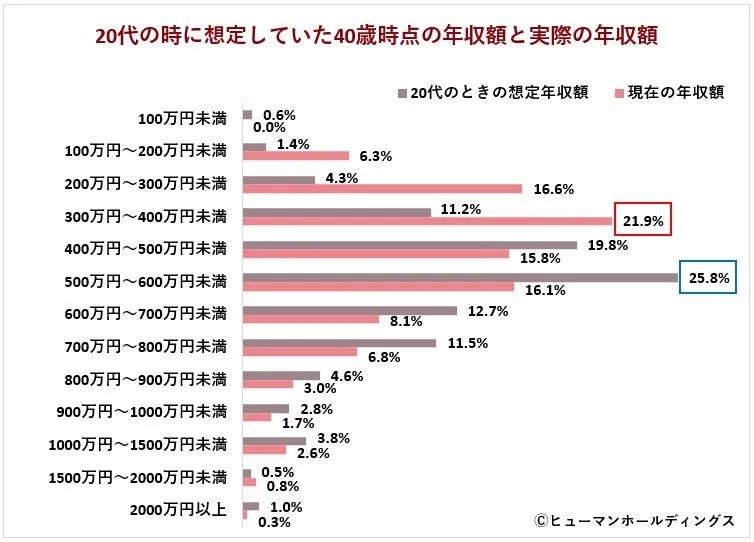
Understanding the Career Dynamics of 40-Year-Old Professionals in Japan
Understanding the Career Dynamics of 40-Year-Old Professionals in Japan
In a recent survey celebrating the 40th anniversary of Human Holdings Co., Ltd., a comprehensive study was conducted on the perceptions and realities of 1,000 professionals born in 1985, now reaching the age of 40. This article delves into notable insights revealing how these individuals view their careers, aspirations, and the evolving demands of the job market.
Key Findings of the Survey
1. High Interest in Job Change
An overwhelming 62.6% of respondents indicated that they have previously changed jobs, and 60.6% expressed an intention to seek new employment in the near future. This highlights a significant trend among 40-year-olds who are actively considering their career paths against a backdrop of professional dissatisfaction.
2. Discrepancy Between Income Expectations and Reality
Interestingly, many participants expected to earn between 5 and 6 million yen annually at this age. However, the majority currently report salaries falling below 4 million yen. This creates a perceived gap of approximately 1 to 2 million yen, emphasizing the growing concerns about compensation in the workforce.
3. Preference for Specialist Roles Over Management
A striking 74% of respondents prefer to identify as specialists rather than pursue managerial roles. The reasons cited often relate to feelings of inadequacy for leadership positions or a desire to deepen their expertise in specific areas. Many indicated that they simply do not see themselves fit for managerial responsibilities.
4. Essential Skills for Career Development
When asked about the skills essential to acquire by age 40, top responses included communication (33.9%), digital skills and IT (30.7%), and language proficiency (21.4%). This reflects the evolving nature of jobs and the increasing importance of communication and digital literacy in the workplace.
5. The Importance of Reskilling
Approximately 23.2% of the participants reported having engaged in reskilling initiatives to enhance their professional abilities or learn new skills. The primary motivation for this effort centers around the need to adapt to changing job markets and maintain motivation in their current roles, with many indicating that professional development directly enhances their job satisfaction.
6. Barriers to Reskilling
Despite the clear value placed on reskilling, 26.8% noted that the demands of their current job interfere with their ability to pursue training. Financial constraints were nearly as frequently cited, highlighting the challenges many face in balancing work responsibilities with the need for professional development.
Conclusion
This survey sheds light on the dynamic career landscape for Japan's 40-year-olds, revealing a blend of ambition, dissatisfaction, and a clear desire for growth. As they navigate the demands of modern employment, the call for effective reskilling, coupled with realistic income expectations, echoes through their responses. As Human Holdings aims to support these professionals in their journey toward realizing their ideal selves, understanding their current career dynamics becomes essential. This insight can help guide policies and programs geared toward career development and satisfaction for today’s workforce, emphasizing the importance of finding balance and fulfillment in one’s professional life. We hope this report serves as a valuable tool for the individuals involved, helping them align their career paths with their ambitions and realities.
- ---
For more information about Human Holdings and their educational and professional programs, visit their official website: Human Holdings
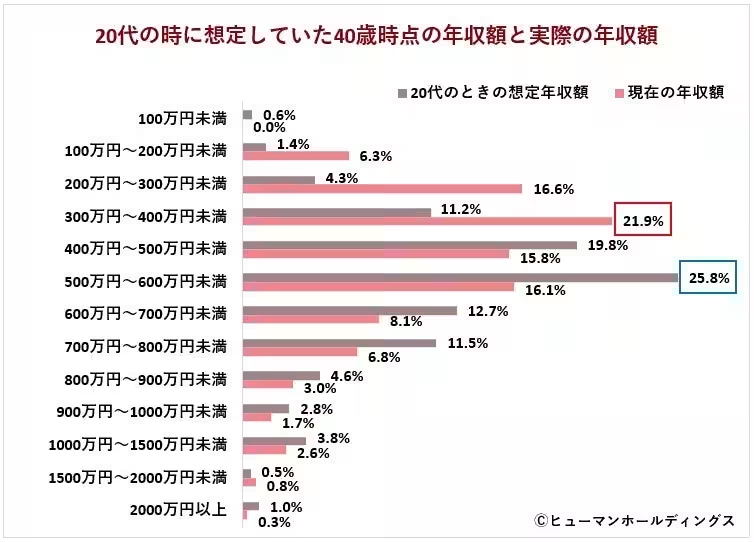
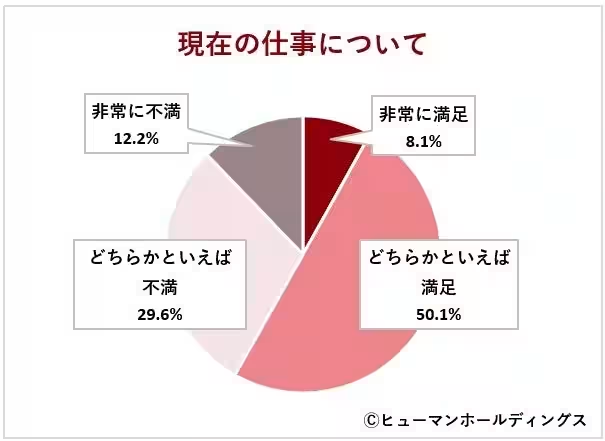
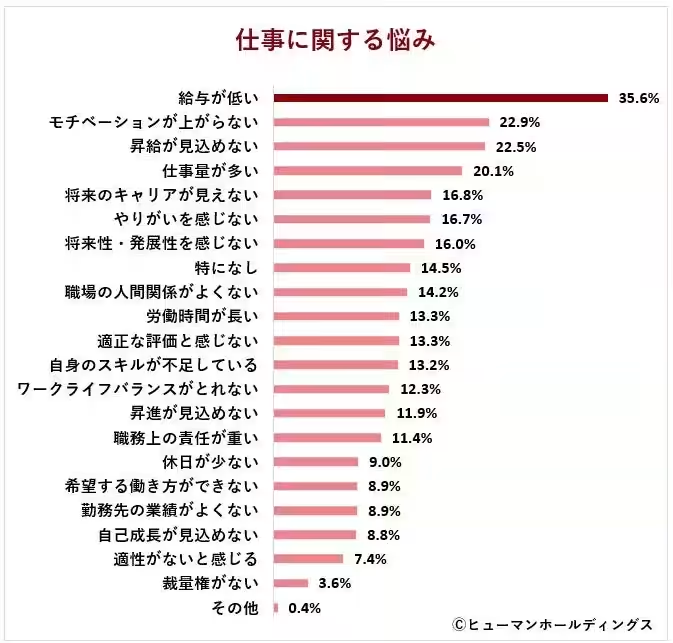
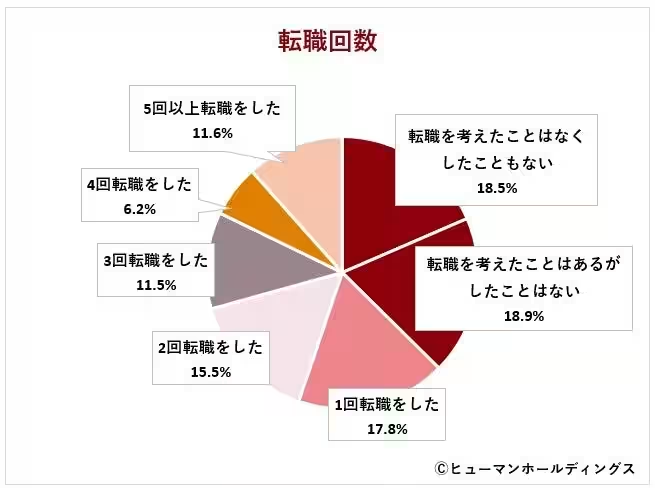
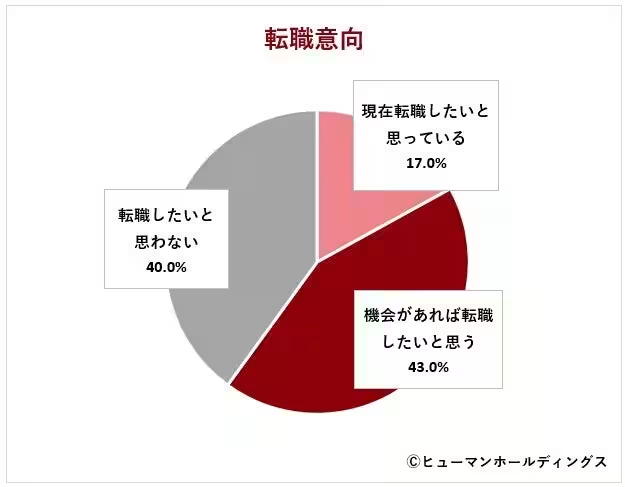
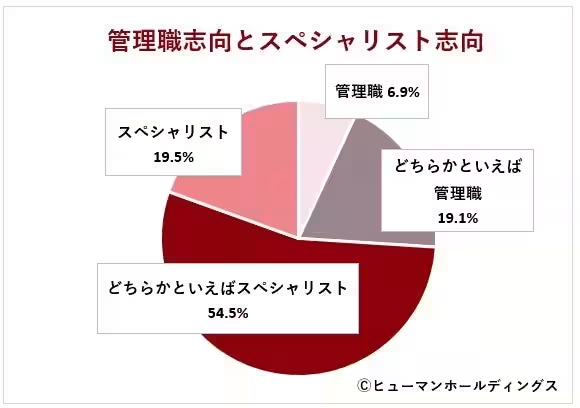
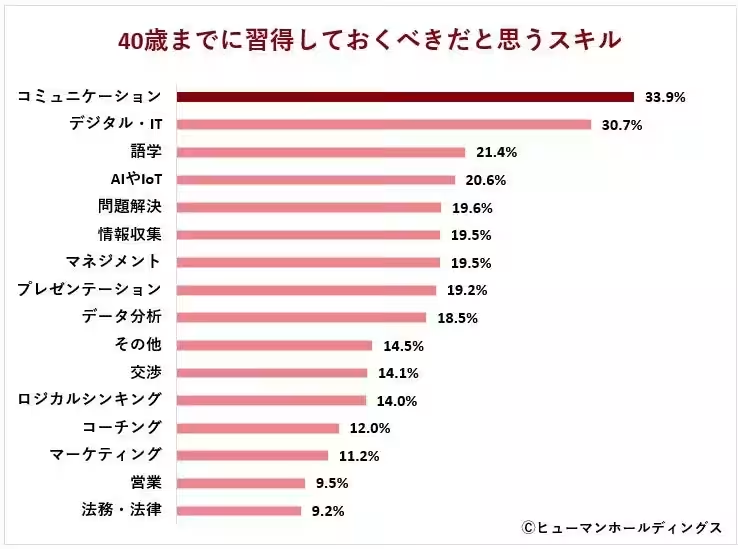
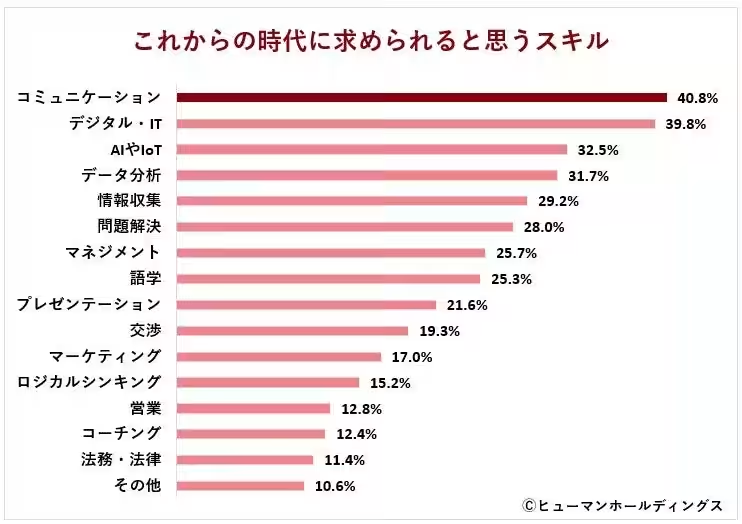
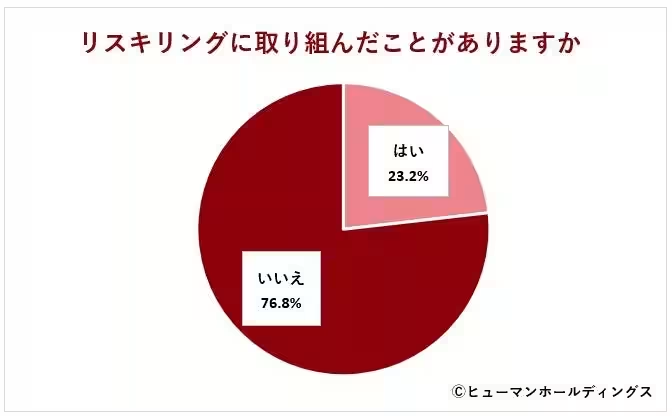
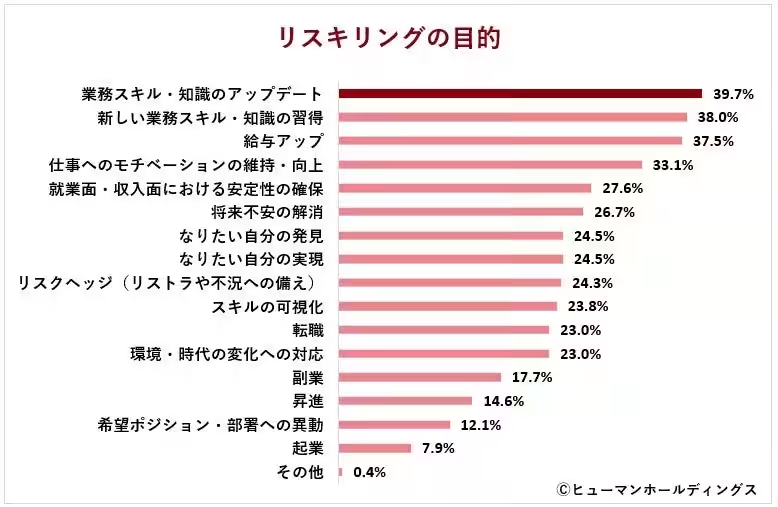
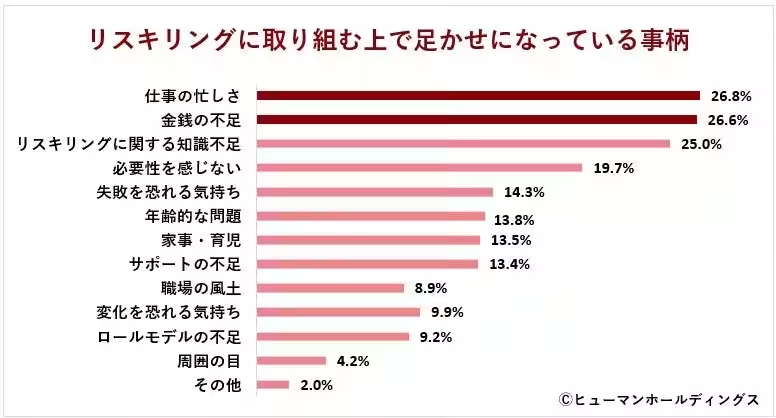
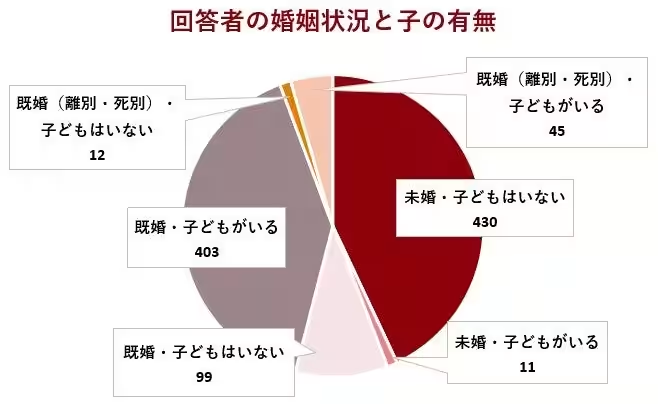
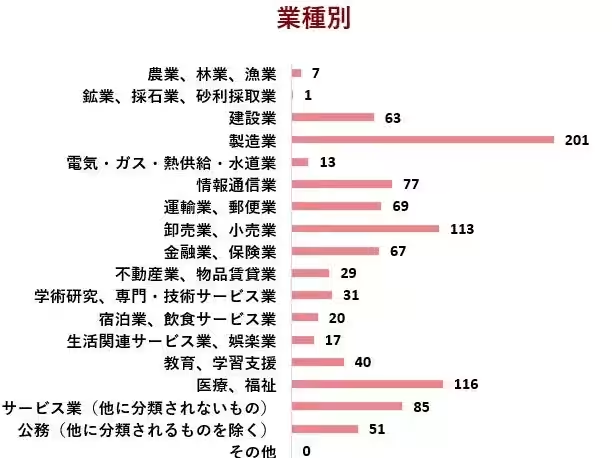
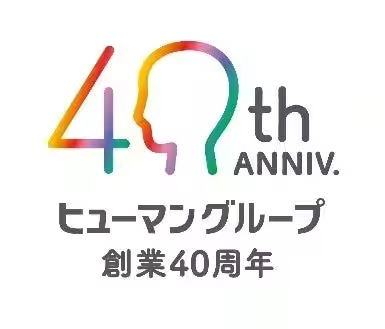
Topics People & Culture)










【About Using Articles】
You can freely use the title and article content by linking to the page where the article is posted.
※ Images cannot be used.
【About Links】
Links are free to use.